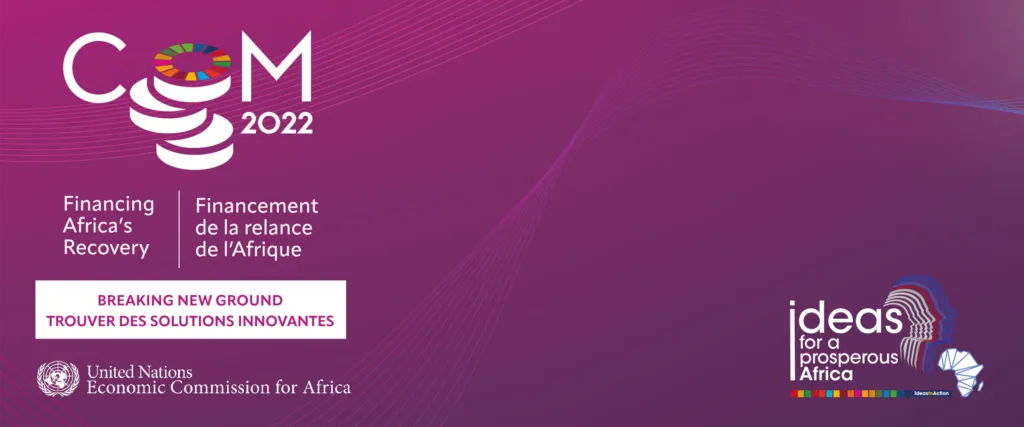The Economic Report on Africa, being launched in Dakar yesterday, highlights the severe impacts on the continent wrought by the Covid-19 pandemic.
The UNECA estimates that the disruptions caused by the pandemic pushed an estimated 55 million Africans into extreme poverty in 2020 and reversed more than two decades of poverty reduction on the continent.
The 2021 edition of the ECA’s Economic Report on Africa’ was launched during the 54th Conference of Ministers in Senegal, setting out several policy recommendations to tackle increased poverty and vulnerability across the continent in the wake of Covid-19.
The report, ‘Addressing poverty and vulnerability in Africa during the Covid-19 pandemic’, found that the global health crisis “exposed the fragility of health and socioeconomic systems across Africa”.
The 133-page document takes a comprehensive look at the effects of the pandemic in Africa and lays out key policy recommendations to ensure that Africa bounces back from Covid-19.
“In this report we analyse the effect of Covid-19 on poverty, but we also look at new dimensions of those who are highly vulnerable, not only those who are below the poverty line, but those that are close to that line and can easily move in and out of poverty due to exogenous shocks,” said Hanan Morsy, Deputy Executive Secretary ECA, at the launch of the flagship report.
“We need to ensure that vulnerable populations are protected in terms of social safety nets and policies, especially as the situation is even more profound with the war in the Ukraine. What we are discussing today is therefore even more critical than when the report was prepared, before the conflict”.
Key findings
The report found that metrics to measure poverty and vulnerability have generally worsened over the last year in Africa.
Poor people with few assets, limited access to credit, informal employment and low wages are particularly vulnerable and have been severely hit by pandemic-containment measures.
People who rely on the informal economy – particularly women, people living with disabilities, refugees and displaced people – have suffered the most from the economic shocks of the Covid-19 pandemic.
Roughly 58 million non-poor Africans whose consumption is $1.90 – $2.09 are extremely vulnerable to falling into poverty because of the pandemic, unless supported by cash or food transfers.
Ethiopia and Nigeria are the source of the most “new poor” created by the pandemic whereas Egypt, Mauritius and the Seychelles are likely to experience low poverty and vulnerability.
On the fiscal side, there are 15 countries that are at risk of debt distress. Chad, Ethiopia and Zambia have already applied for debt relief under the G20 Common Framework.
The Covid-19 pandemic has heavily disrupted the movement of people, goods, services and capital, and its impacts led Africa’s GDP to contract by an estimated 3.2 per cent in 2020.
The pandemic is expected to weigh further on already slow economic growth, immediately declining oil and commodity prices and growing fiscal deficits and external debt, which together are likely to narrow the fiscal space required to tackle pandemic-related challenges.
The poverty effect of the Covid-19 pandemic also varies. The report finds that countries with the capacity to generate good jobs and have low youth and old-age dependency ratios, a highly educated labour force and good internet are likely to fare much better. These include Egypt, Mauritania and Seychelles, the report notes.
On the positive side, despite limited resources African government responded rapidly to the Covid-19 pandemic by adopting targeted policy interventions or stimulus packages to reinvigorate growth, boost productivity and employment, protect poor and vulnerable people and offset the socioeconomic impact of the pandemic, the report said.
The pandemic has also made women more vulnerable to falling into poverty, with government policy accentuating gender inequalities.
In South Africa, 47% of employed women in the poorest bracket reported losing their jobs compared with 36% of employed men in the same bracket.
On the fiscal side, there are 15 countries that are at risk of debt distress.

Want to continue reading? Subscribe today.
You've read all your free articles for this month! Subscribe now to enjoy full access to our content.
Digital Monthly
£8.00 / month
Receive full unlimited access to our articles, opinions, podcasts and more.
Digital Yearly
£70.00 / year
Our best value offer - save £26 and gain access to all of our digital content for an entire year!
 Sign in with Google
Sign in with Google 



